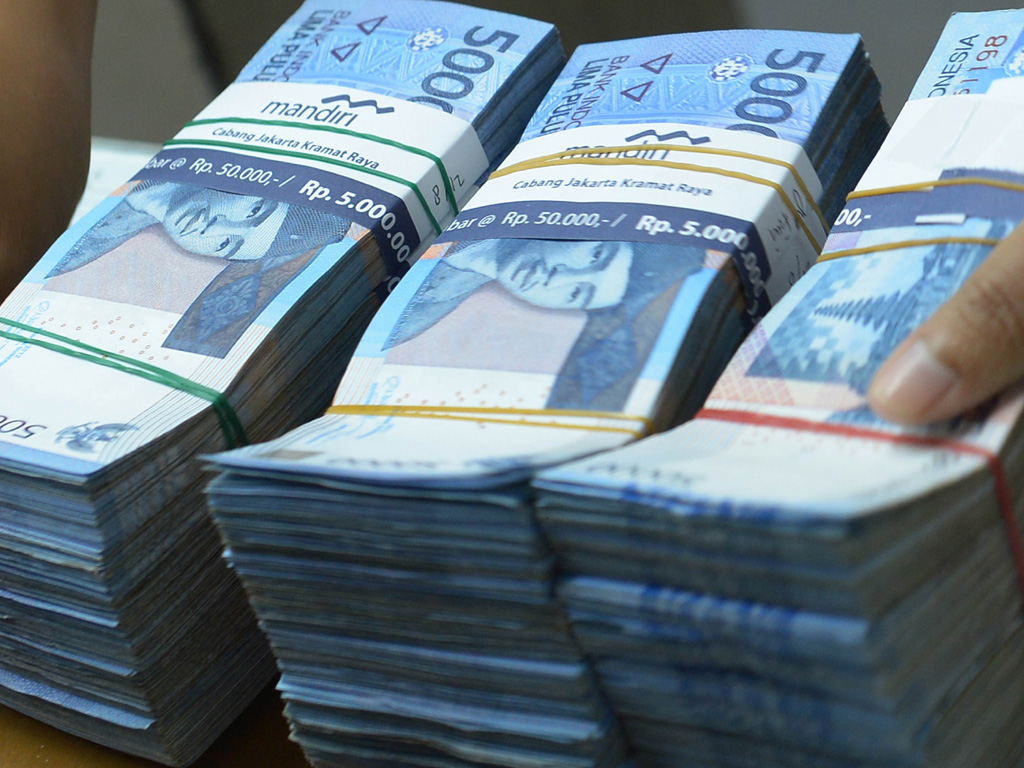Indonesia braces for prolonged pressure as rupiah slides

JAKARTA: Indonesia is bracing for prolonged pressure on the rupiah amid souring emerging market sentiment exacerbated by Argentina's economic woes, the country's finance minister said on Monday, as the local currency plumbed its weakest levels since 1998.
The rupiah hit 14,825 per dollar on Monday, the weakest since the Asian Financial Crisis two decades ago, before closing at 14,810. It has lost nearly 9 percent this year.
Bank Indonesia (BI) intervened again on Monday in the foreign exchange and bond markets as foreign investors continued to sell Indonesian assets spurred by rising U.S. interest rates and fears of contagion from crises in Turkey and Argentina.
"We are monitoring global dynamics and need to be vigilant because the dynamics caused by the sentiment on Argentina is very high. The situation there is not yet finished, so we're anticipating these dynamics will continue," Sri Mulyani Indrawati told reporters after a meeting with President Joko Widodo and the central bank governor.
Widodo had called a meeting with his economic ministers and the central bank governor to stress the importance of communicating to the people what was being done to stabilise the exchange rate, Coordinating Minister for Economic Affairs Darmin Nasution said.
"The president said 'don't let it be that you've done something, but the people said you have not'," Nasution said.
The government has forced a wider use of biodiesel starting Sept. 1 to reduce oil import bill. Officials have also announced plans to raise import tariffs on some consumer goods, though the list of affected items has not been made public yet.
Indrawati said authorities will monitor "in detail the behavior of market players" and take steps to prevent speculation.
BI has raised its benchmark interest rate four times since mid-May, by 125 basis points. It has also spent billions of foreign exchange reserves to intervene in the currency and bond markets.
International credit rating agency Fitch Ratings has forecast Indonesia's policy interest rate could rise by 100 basis points through 2020.
Jahja Setiaatmadja, Bank Central Asia's chief executive, said he saw no sign of the sort of panic-selling seen during the crisis two decades ago, but added that the central bank could have to raise interest rates by at least 200 bps more by 2019.
Indonesia's 10-year bond yield rose to 8.266 percent on Monday, the highest since November 2016, while the main stock index slipped 0.9 percent.
The cost of insuring exposure to Indonesia's sovereign debt hit an eight-week high, with the country's five-year credit default swaps jumping 5 basis points (bps) from Friday's close to 131 bps, according to data from IHS Markit.
"With an external situation like the one we face now, we must assume that we need to continue to strengthen our fundamentals," Indrawati said.
"We are looking directly at our foundation and looking at where there are factors that are considered sources of weakness," she said.




















Comments
Comments are closed.